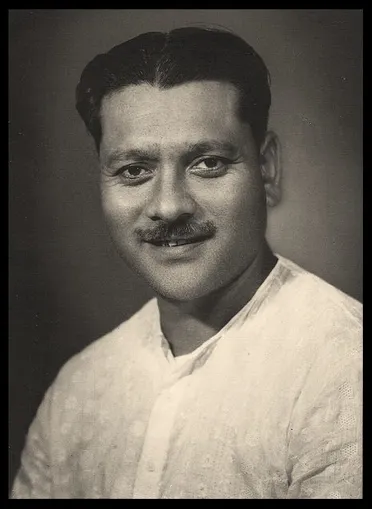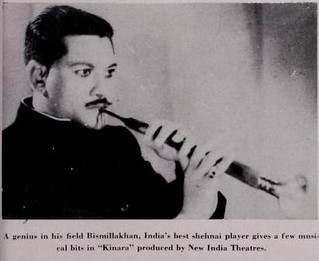
Adam and Eve, who are they❓ #Thread 

In the Old Testament, no etymological explanation is given for these two names, but Moses' name was derived from water, which in its liquid form resembles melting in a Moosa or crucible (a receptacle in which substances are heated to high temperatures). 

Evidently, not even a hazy concept was gained when the titles Adam & Eve were borrowed. As revealed to Moses in Genesis, Adam & Eve are not the 1st parents of mankind. The two words provide highly technical n incredibly useful directions for Hindu religious progress. 

आदमो नाम पुरुषः पत्नी हव्यवती स्मृता।
विष्णुकर्दमतो जातौ म्लेच्छवंशप्रवर्धनौ ॥
इन्द्रियाणि दमित्वा यो ह्यात्मज्ञानपरायणः ।
तस्मादादमनामाऽसौ पत्नी हव्यवती स्मृता ॥
"The Mlechha Vamsa was created by the Purusha Aadama and his wife Havyavati, who were born from Vishnu's mud."
विष्णुकर्दमतो जातौ म्लेच्छवंशप्रवर्धनौ ॥
इन्द्रियाणि दमित्वा यो ह्यात्मज्ञानपरायणः ।
तस्मादादमनामाऽसौ पत्नी हव्यवती स्मृता ॥
"The Mlechha Vamsa was created by the Purusha Aadama and his wife Havyavati, who were born from Vishnu's mud."

Aa-Dama is a person who practises Dama, or sense control, with a strong desire to attain Atma-Gnana, and his wife is Havyavati, referring to his Buddhi, which sacrifices (Hav) all low wants and evil impulses.
Adam and Eve's creation as the first man and woman is a well-known account told in the Old Testament and repeated verbatim in the Quran.
Is it religiously significant or useful?
Adam was made from the dust of the earth, while Eve, his wife, was created from one of Adam's ribs.
Is it religiously significant or useful?
Adam was made from the dust of the earth, while Eve, his wife, was created from one of Adam's ribs.
Are these facts from history?
What has Prof. Max Muller, who pushed on a historical inquiry into the Vedic Aditi, written about his own sacred Book of the West throughout his lifetime?
What has Prof. Max Muller, who pushed on a historical inquiry into the Vedic Aditi, written about his own sacred Book of the West throughout his lifetime?

Adam lived for 930 years; his son Mahallaleel 895, Shem 600, Arphaxad 438. Salah 433. Eber 464. Peleg 239. Ren 239, Sarug 230, Nahor 148. Terah 205 years.
All of these contain a significant amount of Western biology. In India, no Hindu dares to dispute this.
All of these contain a significant amount of Western biology. In India, no Hindu dares to dispute this.
After being deceived by the words of a serpent, Adam and Eve ate the forbidden fruit from the tree of knowledge of good and evil, and thus they fell. God cursed the serpent to crawl on the ground in the future.
What tree is this and What is its forbidden fruit?
What tree is this and What is its forbidden fruit?

If God forbade the knowledge of good and evil from the beginning of creation, there is no need to be astonished by what Christians are doing now.
The serpent, on the other hand, appears to have lost its initial privilege of walking upright and speaking in human language as a result of the curse.
That was unfortunate.
That was unfortunate.
We have no desire to extract any detailed information from the Bible's contents. However, we are at a loss for words. Why should the author r authors of the Christian Bible, as well as the writer of the Quran, totally borrow the Old Testament, which has long belonged to the Jews? 

If Western historians and philologists had worked with any scientific zeal, and especially without their unjustified hatred of Hindus, they would have discovered long ago that the majority of the contents of both Testaments were simply Indian Itihasic scriptures.
Adam and Eve's narrative is a straightforward Itihasa from the Puranas. This fact, in and of itself, contradicts their irrational argument about the so-called Puranic period.
They might even say outright that the Puranas' narration was recently taken and interpolated from the Bible. Even if that were the case, we have no need to be embarrassed if the borrowing is for a good reason.
According to the Purana, Adam does not relate to God's first or second creations. His wife isn't made from his rib, either. Both the husband and the wife collectively reflect a stage in man's religious development that is not of the highest level.
Who is this serpent who persuaded people to eat the forbidden fruit of knowledge?
If the fruit was knowledge, the serpent would undoubtedly require a similar explanation. Humans could not reasonably believe in any revelations about the historical significance of these utterances.
If the fruit was knowledge, the serpent would undoubtedly require a similar explanation. Humans could not reasonably believe in any revelations about the historical significance of these utterances.
When a person eats the fruit of knowledge, he falls, and only when he consumes the fruit of ignorance does he ascend, when they wrote out what they termed the Old Testament, meaning what they actually recognised as witnesses, insisted on public ignorance (testify).
All of this must now be compared to the original Itihasic account in the Purana, from which all of these extraneous and illogical nonsense are definitely ill-copied.
प्रदाननगरस्यैव पूर्वभागे महद्वनम्।
ईश्वरेण कृतं रम्यं चतुःक्रोशायतं स्मृतम् ||
कलिस्तत्रागतस्तूर्णं सर्परूपं हि तत्क्रुतम्।
वञ्चितानेन धूर्तेन विष्ण्वाज्ञा भङ्गतां गता ||
खादित्वा तत्फलं रम्यं लोकमार्गप्रदं पतिः।
सूताः पुत्रास्ततो जातास्सर्वे म्लेच्छा बभूविरे ||
ईश्वरेण कृतं रम्यं चतुःक्रोशायतं स्मृतम् ||
कलिस्तत्रागतस्तूर्णं सर्परूपं हि तत्क्रुतम्।
वञ्चितानेन धूर्तेन विष्ण्वाज्ञा भङ्गतां गता ||
खादित्वा तत्फलं रम्यं लोकमार्गप्रदं पतिः।
सूताः पुत्रास्ततो जातास्सर्वे म्लेच्छा बभूविरे ||
To the east of Pradana nagaram, Iswara constructed a lovely forest that stretches for 4 Krosas. Kali emerged in the form of a serpent right away.
The command of Vishnu was disregarded by eating the enticing forbidden fruit symbolising "worldly wants" after being tricked by that wicked Kali. As a result, Aadama's sons and daughters became Mlechhas.
For 930 years, Aadama ruled over Ma-Nagaram, and for 895 years, his son Mahalalel ruled over Ma-Nagaram.
त्रिंशोत्तरं नवशतं तस्यायुः परिकीर्तितम्।
महल्ललस्तस्य सुतः पञ्चहीनं शतं नव ।
तेन राज्यं कृतं तत्र तस्मान्मानगरं स्मृतम् ॥
त्रिंशोत्तरं नवशतं तस्यायुः परिकीर्तितम्।
महल्ललस्तस्य सुतः पञ्चहीनं शतं नव ।
तेन राज्यं कृतं तत्र तस्मान्मानगरं स्मृतम् ॥
When Aadama and Havyavati realised they had eaten the forbidden fruit, they removed all the fruits from the tree and sacrificed them in Agni, the Fire of Knowledge. Both of them were whisked up to Heaven right away.
फलानां हवनं कुर्वन् पत्न्या सह दिवंगतः ॥
फलानां हवनं कुर्वन् पत्न्या सह दिवंगतः ॥
The Puranic narrative, which has an essential Itihasic meaning throughout, comes to an end here. But, before we notice it, we must compare the specifics presented here with those found in the Old Testament in terms of omissions, additions, and changes.
to be continued....🙏
to be continued....🙏

@Gkb19551
@DrUgrabhatah
@AjitsinhJagirda
@nair_hena08
@neerangautam
@shytigress
@chimnibai
@_ankahi
@SoniaGurnani19
@Ravichiruvolu1
@ArunDeshpande20
@JaganNKaushik
@GenPanwar
@SortedEagle
@nrajabpcl
@Visalmama
@LoveBharatvarsh
@VeerannaAthani
@IndianRajeshNCo
@bs_hariharan3
@DrUgrabhatah
@AjitsinhJagirda
@nair_hena08
@neerangautam
@shytigress
@chimnibai
@_ankahi
@SoniaGurnani19
@Ravichiruvolu1
@ArunDeshpande20
@JaganNKaushik
@GenPanwar
@SortedEagle
@nrajabpcl
@Visalmama
@LoveBharatvarsh
@VeerannaAthani
@IndianRajeshNCo
@bs_hariharan3
Adam & Eve - Part 2
https://twitter.com/sureshseshadri1/status/1474721764080971779?s=20
• • •
Missing some Tweet in this thread? You can try to
force a refresh


















